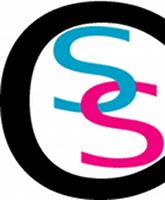University of New Mexico
Large classes may well be the most ineffectual component of higher education in sciences and mathematics. Disciplinary-based research reveals that such classes work only for a small fraction of students and turn off many, even majors. To transform such courses, we should design, implement, and assess an innovative, conceptually-based instructional model for teaching large (or small!) undergraduate courses for both majors and non-majors.
To execute this effort required active-learning strategies to engage the students, especially in classes for non-majors. Central to success is the implementation of cooperative learning teams and the use of teams for activities, demonstrations, quizzes, and conceptual tests and concept mapping. I will highlight the practical and very positive aspects of a team-enhanced class, strategies that can be applied to all sciences and mathematics areas. (This research was supported in part by NSF grant DUE-9253983.)
Dr. Michael Zeilik's research activities have focused on magnetic activity cycles of sunlike stars, starbirth, astronomy in the historic and prehistoric Pueblo world, and a cognitive approach to teaching science. He has published four books, over 100 professional articles, and given over 200 talks to professional and lay audiences. Zeilik's teaching interests are introductory courses for the novice, non-science major student, and astronomy education research at the university. He has been supported by grants from the National Science Foundation, NASA, the Exxon Educational Foundation, and the Slipher Fund of the National Academy of Sciences for innovations in astronomy education, astronomy for the general public, and astronomy workshops for in-service teachers. In 1998-99, he has an appointment as a Fellow with the National Institute for Science Education, working on issues of classroom assessment.
